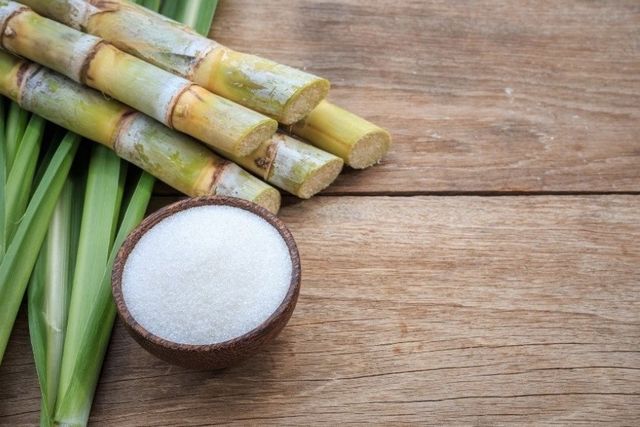Sugar and Cane: A Guide to Their Nutritional Benefits and Uses
Sugar and Cane: A Guide to Their Nutritional Benefits and Uses
Blog Article
Why Cane Sugar Processing Chemicals Are Crucial for Modern Sugar Refining
The duty of walking stick sugar handling chemicals in modern sugar refining can not be overstated, as they are important to boosting both the efficiency of removal and the overall high quality of the last product. Agents such as phosphoric acid and specific flocculants are employed to eliminate pollutants, resulting in sugar that not only meets consumer assumptions however additionally sticks to market requirements.
Function of Handling Chemicals
The efficacy of walking cane sugar handling hinges dramatically on the critical application of handling chemicals. These chemicals play a crucial function in enhancing the effectiveness and high quality of sugar extraction and refining. From the initial phases of juice removal to the last filtration actions, processing chemicals facilitate numerous important operations.
In the extraction phase, chemicals such as phosphoric acid and calcium hydroxide are used to enhance the information process, assisting to get rid of pollutants and suspended solids from the walking cane juice. This not only enhances the yield yet likewise guarantees the clarity of the end product. In addition, agents like flocculants help in the fast settling of contaminations, thus streamlining the total process.
As the handling advances, chemicals are used in decolorization and crystallization phases. Triggered carbon and ion exchange materials serve to remove color and smell, making sure that the polished sugar meets consumer quality requirements. Eventually, the function of handling chemicals extends past functional efficiency; they substantially impact the sensory qualities of the end product, adding to market competitiveness. Hence, the precise choice and application of these chemicals are important for achieving optimum outcomes in walking stick sugar handling.
Trick Types of Chemicals
Walking cane sugar handling relies on a range of crucial chemicals that assist in each stage of production. These chemicals play vital duties in clarifying, bleaching, and cleansing the sugar drawn out from walking cane.
One key classification of chemicals consists of flocculants, such as polyacrylamide, which aid in the clarification process by promoting the aggregation and settling of contaminations. In addition, calcium hydroxide is often employed to neutralize level of acidity and assist in the removal of non-sugar components.
Whitening representatives, such as activated carbon and sulfur dioxide, are used to decolorize the syrup, resulting in a clearer last item. These chemicals help remove shade substances that might impact the sugar's look and marketability.
In addition, phosphoric acid functions as a pH regulator during the handling stages, making sure ideal problems for the enzymatic tasks associated with sugar removal and purification.
Other vital agents consist of edta (ethylenediaminetetraacetic acid), which chelates steel ions that might catalyze unfavorable reactions, and sodium hydroxide, which assists in pH control throughout the refining procedure. Collectively, these chemicals enhance performance and ensure a top quality walking cane sugar product.
Advantages for Sugar Quality
Typically overlooked, making use of particular handling chemicals considerably improves the overall high quality of cane sugar. These chemicals play an essential role in refining processes, guaranteeing that the final item satisfies stringent industry requirements for purity and preference.

Additionally, processing chemicals aid in attaining a constant granulation and appearance, which are essential for customer approval. By managing the formation procedure, these chemicals make certain that the sugar crystals develop consistently, resulting in a much more appealing product that dissolves well in various applications.
Furthermore, making use of these chemicals can improve the rack life of walking stick sugar by lessening moisture absorption and microbial development. Generally, the tactical application of handling chemicals is crucial for providing premium cane sugar that fulfills consumer assumptions and market demands.
Ecological Impact Factors To Consider

Moreover, the energy-intensive nature of sugar refining, worsened by chemical usage, typically causes enhanced carbon discharges. This contributes to environment change and increases problems relating to the sustainability of existing refining methods. Additionally, the sourcing of these chemicals might involve techniques that threaten biodiversity, such as monoculture farming, which decreases the strength of farming ecosystems.

To alleviate these influences, sugar refiners are increasingly exploring lasting choices and taking on ideal practices that reduce chemical use. Applying extensive ecological monitoring systems can help ensure that the refining procedure straightens with environmental standards and advertises biodiversity. Eventually, a well balanced method that prioritizes both sugar top quality and environmental stewardship is vital for the lasting practicality of the sugar industry.
Future Trends in Refining
As the sugar sector faces the ecological challenges linked with standard refining methods, innovative approaches are arising to enhance both performance and sustainability. One considerable fad is the adoption of environment-friendly chemistry principles, which focus on making use of safe, biodegradable processing chemicals. This change not just reduces ecological impact however also addresses customer demand for cleaner production approaches.
One more appealing development is the application of innovative filtering technologies, such as membrane splitting up and adsorption processes. These methods improve the clarity and top quality of the sugar while decreasing the volume of wastewater generated throughout refining. page In addition, the integration of digital innovations, including IoT and AI, is transforming functional performance by enabling real-time monitoring and anticipating upkeep, hence minimizing resource waste.
Additionally, using byproducts from sugar refining, such as bagasse and molasses, is gaining traction. These materials can be exchanged biofuels or value-added products, adding to a round economic situation within the industry. Collectively, these trends indicate try these out a shift towards even more lasting techniques that not just enhance operational efficiency but likewise line up with worldwide sustainability objectives, making certain the future feasibility of sugar refining.
Conclusion
Walking stick sugar processing chemicals are essential in contemporary sugar refining, dramatically enhancing the performance and quality of sugar extraction. The calculated use these chemicals not only enhances the purity and taste of the end product but also makes sure regular crystallization and structure. As the sector increasingly prioritizes sustainability, the fostering of environmentally-friendly processing representatives is likely to shape future fads in refining, ultimately causing better items and prolonged service life for customers.

Eventually, a balanced approach that prioritizes both sugar top quality and environmental stewardship is crucial for the lasting practicality of the sugar market.
Walking cane sugar handling chemicals are important in contemporary sugar refining, dramatically enhancing the efficiency and high quality of sugar extraction.
Report this page